Teaching “Mexican Repatriation”:
A 5th-grade teacher engages students in a unit on the forced deportation of 2 million Mexicans and Mexican Americans from the United States during the Great Depression.
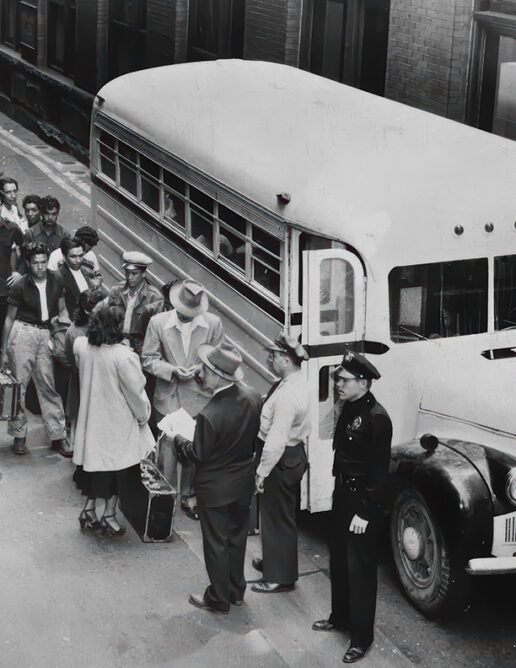
A 5th-grade teacher engages students in a unit on the forced deportation of 2 million Mexicans and Mexican Americans from the United States during the Great Depression.
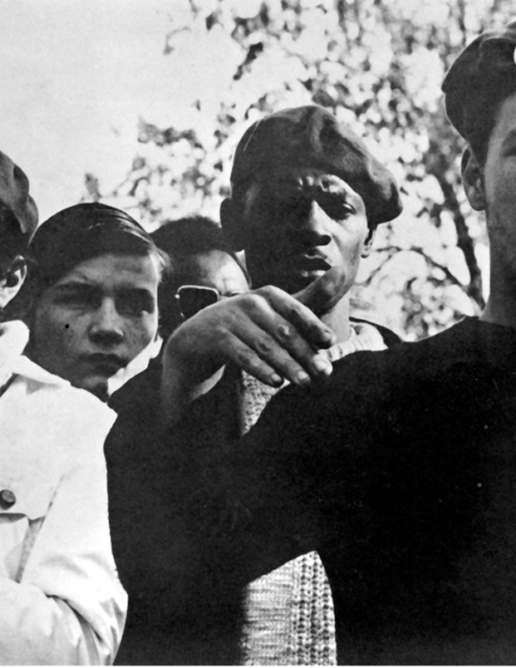
A Chicago educator discusses the creation of a new curriculum on the Young Lords, one of the most imaginative and effective organizations of the 1960s.

Two professors document the struggles of undocumented teachers and offer ways educators, schools, and policymakers can better support them.

A 4th- and 5th-grade bilingual teacher details how the practice of home visits helped him connect with migrant students and families who were bused from Texas to New York.

Las visitas al hogar son una práctica fundamental de mi labor como docente comunitario. Sin embargo, este año tuve una experiencia completamente diferente. Este año, todas las familias de los […]
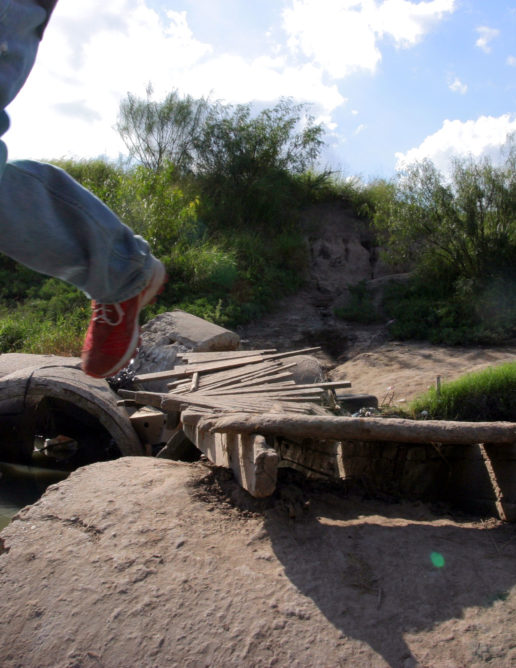
Alexander and their middle school students use the powerful poem “To live in the borderlands means you,” by Gloria Anzaldúa, to explore the borderlands of their own lives.

A teacher educator helps preservice teachers understand the history of how Mexican Americans have been racialized as Black and white at different times to keep them out of white schools.
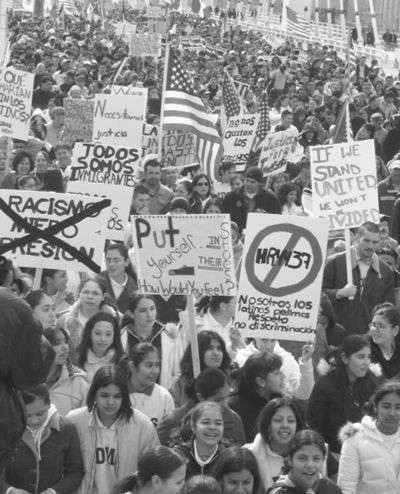
This content is restricted to subscribers
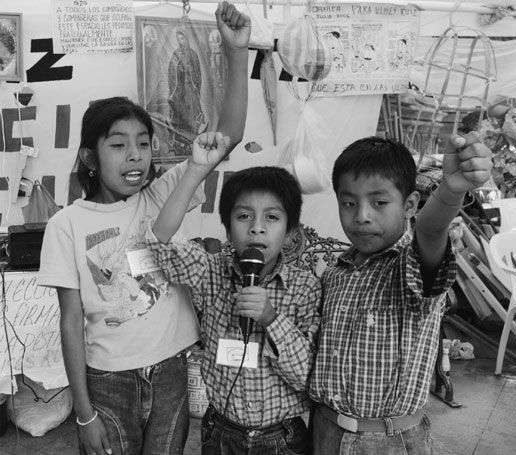
Film Radio Free Oaxaca Un poquito de tanta verdad (A Little Bit of So Much Truth) Director: Jill Freidberg Corrugated Films, 2007 (www.corrugate.org) DVD. 93 min. By Kelley Dawson Salas Un Poquito de Tanta Verdad […]

“Banned in Tucson.” As many Rethinking Schools readers know, in January Tucson school officials ordered our book Rethinking Columbus removed from Mexican American Studies classes, as part of their move to shut down the […]
Fourth-grade English language learners use wikis to study border issues and gain literacy skills.
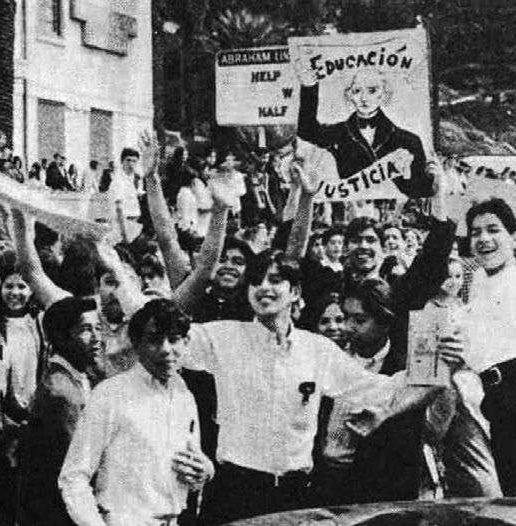
This year is the 40th anniversary of the Chicana/o School Blowouts
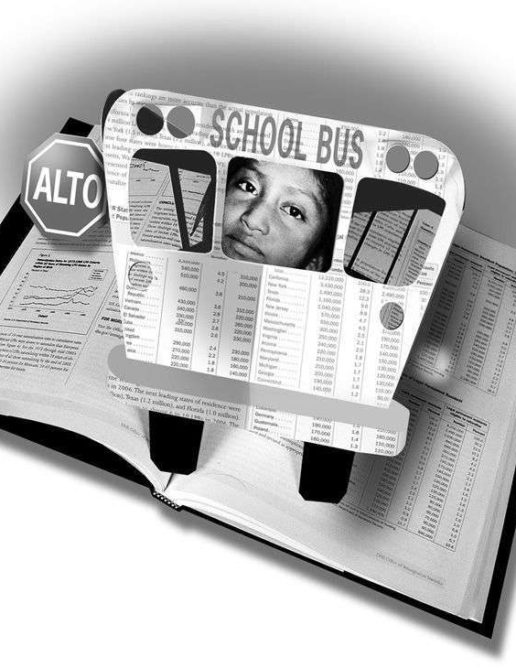
For those of us working with immigrant populations, we have in our students living examples that we can use to bring the immigration issue to the forefront and teach all of our students.
The Association of Raza Educators implores you: open your scholarships to all students of Hispanic descent regardless of citizenship.

I noted the biased curriculum… the absence of lessons on the Chicano movement or other aspects of my history and culture
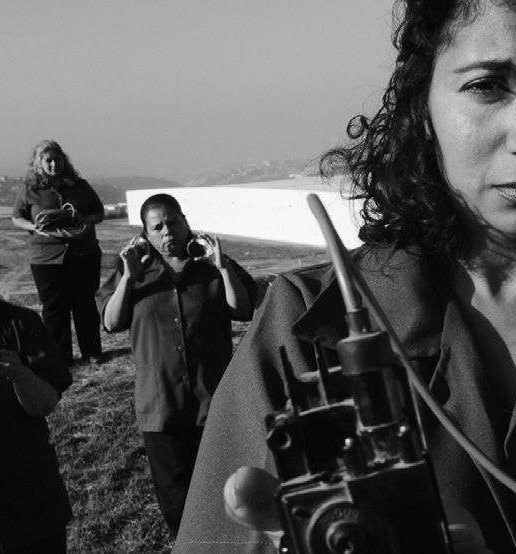
By Julie Treick O’Neill A review of the film Maquilapolis [City of Factories]

San Francisco fourth graders learn about global warming and take action to save the polar bears.
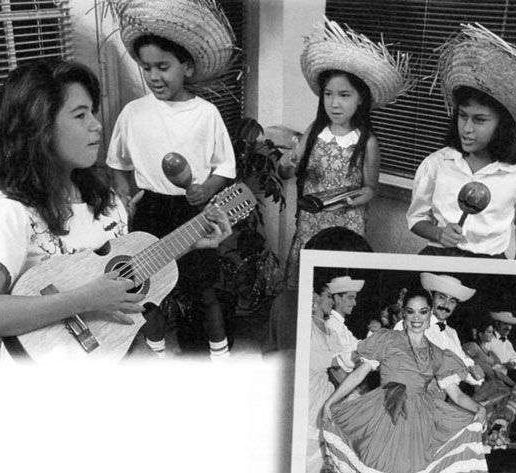
Latinos dance, they sing, they happily play baseball. And what great food!
Film: Granito de Arena (Grain of Sand) by director: Jill Friedberg, Corrugated Films, 2005, DVD. 60 min.
This content is restricted to subscribers

The principal of Brooklyn’s El Puente Academy for Peace and Justice shows how art can connect students with their communities.
Leaving Children Behind: How “Texas-style” Accountability Fails Latino YouthEdited by Angela Valenzuela State University of New York Press, 2005 313 pp. $73.50 “Everything is bigger in Texas,” the saying goes. Apparently it’s true. […]
This content is restricted to subscribers

High-stakes tests have not only failed to achieve racial equality in schooling, they’ve also made it worse for students of color.

The same mid-February weekend that Trump declared his manufactured emergency, I traveled to El Paso on behalf of the Massachusetts Teachers Association to take part in a “Teach-In for Freedom” organized by Teachers Against Child Detention. This event, among other demands, “called on the U.S. government to end the detention and criminalization of immigrant children and their families.”